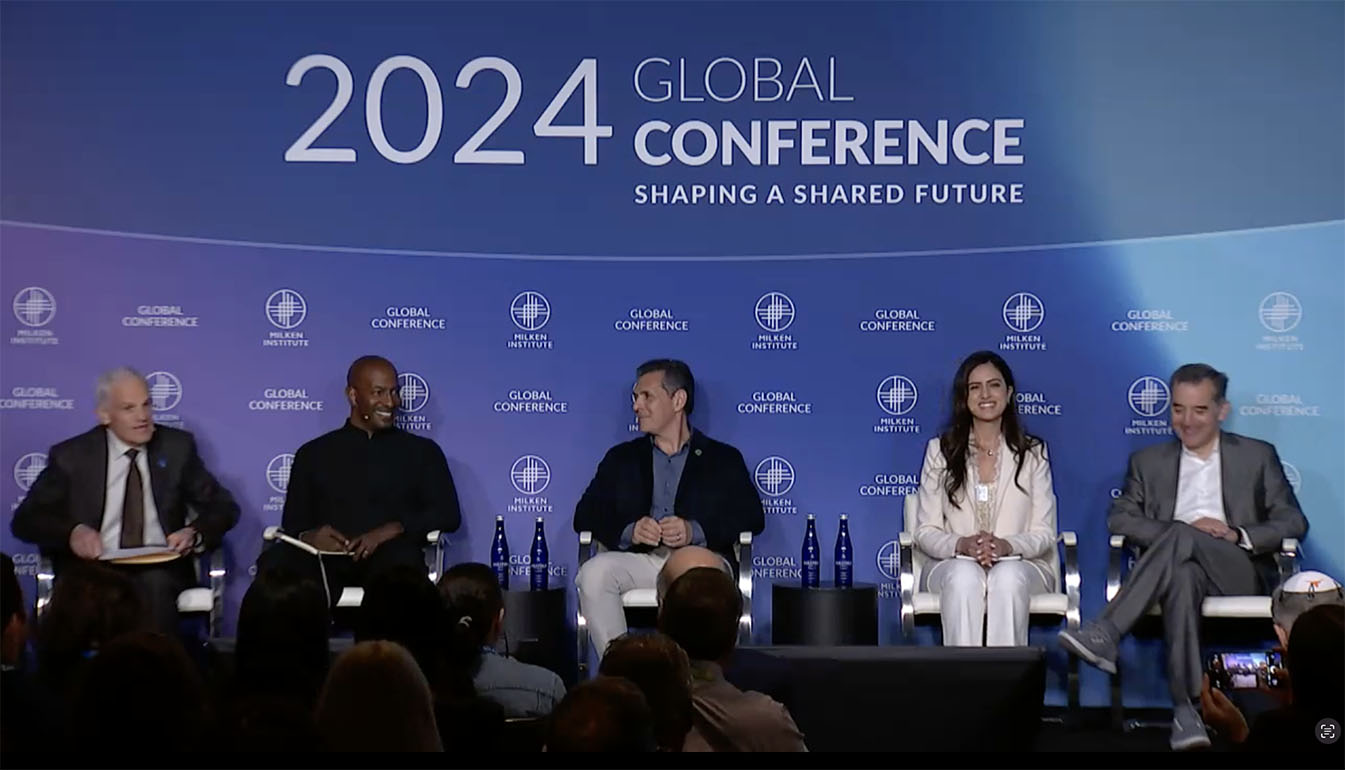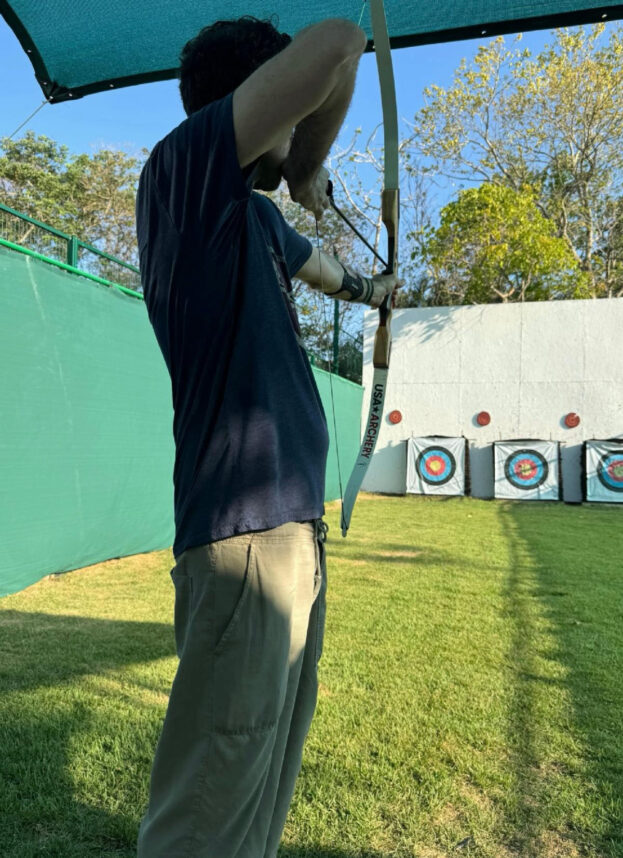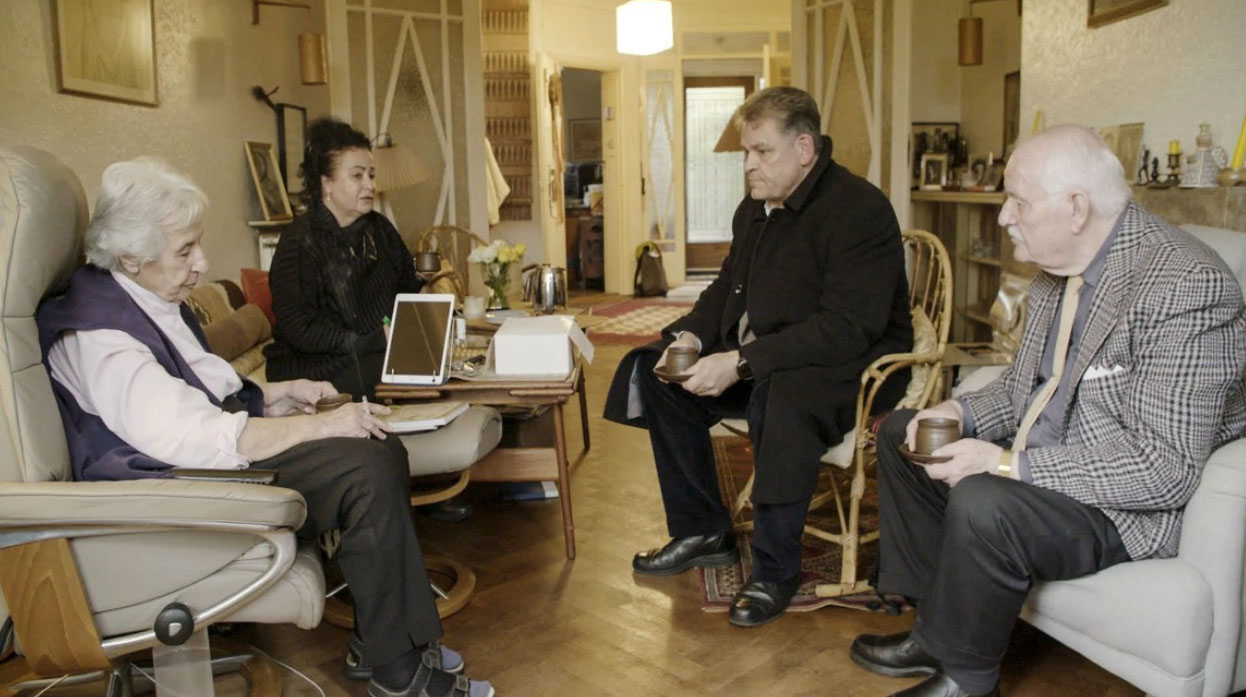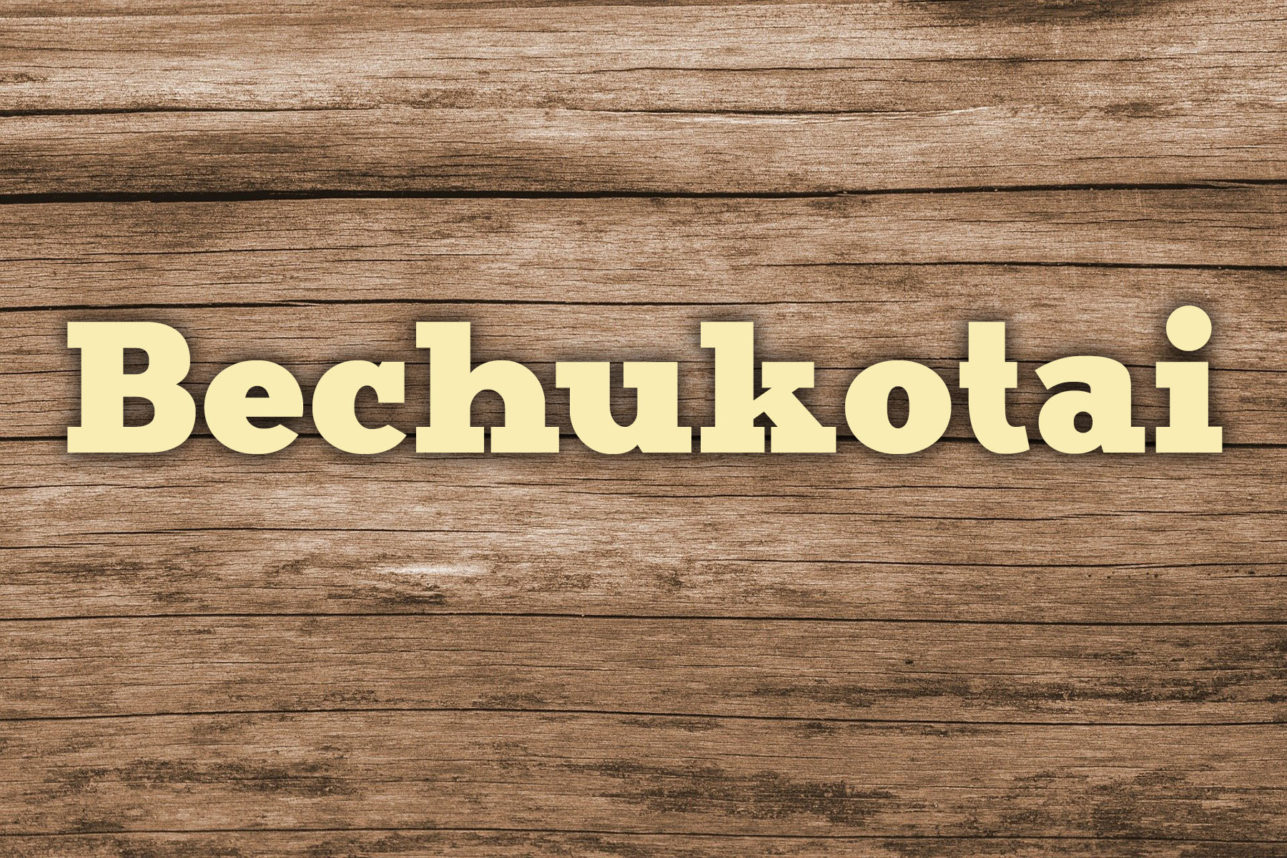 The panel “Beyond the Headlines: Addressing Antisemitism and Religious Bias Based on Facts” at the Milken Institute’s 2024 Global Conference. (Screenshot)
The panel “Beyond the Headlines: Addressing Antisemitism and Religious Bias Based on Facts” at the Milken Institute’s 2024 Global Conference. (Screenshot) There are two opposite vibes at the annual, three-day Milken Conference, which took place this week at The Beverly Hilton. One vibe is in the lobby and hallways, where high-achieving attendees mingle and schmooze like business butterflies. This vibe is in the spirit of social media—quick hits, short conversations, lots of buzz, eager networking, and so on.
The other vibe is more like Talmudic grappling. Here, everything slows down. You experience this vibe in conference rooms and presentation halls where hundreds of experts grapple in deliberate fashion with some of the world’s toughest problems.
No one expects these problems to be solved in one panel or conference. The grappling itself is the idea. The best solutions, after all, often arise from rigorous grappling– correct framing of problems; push and pull of different approaches; connection between different disciplines; balance between innovation and human values; exposure to new ideas, specialized knowledge and different cultures, and so on.
Any lover of Talmud would feel at home with this slower vibe. The Talmud itself represents centuries of painstaking grappling with difficult issues. Beginning more than 2,000 years ago, it was a way for the Sages of the day to weigh in on the countless intricate challenges of everyday life.
The Milken Institute’s 2024 Global Conference, which this year attracted 4,000 attendees, including over 1,000 speakers and industry leaders from around the world, continues that Talmudic tradition.
Just as the ancient Sages tackled the people’s problems, the conference tackles everything it deems vital, from health, finance and technology to philanthropy, sports, and media. The conference, as it says on its website, “grapples with critical issues, from geopolitical hotspots and the ongoing climate crisis to the complexities of artificial intelligence, examining both its potential and impact on global workers, firms, and markets.”
As one can see on the conference website, where the wide breadth of the panels can be viewed, there are few stones that are left unturned.
I had a special interest in a panel titled, “Beyond the Headlines: Addressing Antisemitism and Religious Bias Based on Facts,” moderated by my friend Richard Sandler.
This topic has taken on added urgency with anti-Israel sentiment spreading on college campuses in the wake of the Gaza War, and many Jewish students feeling under siege. Given the long history of antisemitism, urgency comes naturally to the Jewish community, which is more than understandable.
The value of the Milken panel is how it balanced the short-term urgency with the long game. Indeed Jewish resilience has always been rooted in the long game; in an appreciation that faith, courage and wisdom help us prevail in the end. The main thing I took away from the panel is that as we fight and understand and teach and expose and analyze the problem of antisemitism, combatting that problem will always be a marathon, not a 100-yard dash. The long game nurtures deeper strategies. It makes us stronger, wiser.
I felt that long game as well on a panel on Israeli innovation. Jonathan Medved, who runs the Israel innovation fund OurCrowd, spoke about the remarkable resilience of the Israeli high-tech sector after the October 7 massacre. He didn’t underplay the dangers of the moment, but he reminded us that the “Start Up Nation” drive to come up with innovative solutions for the planet is as alive as ever.
This kind of long game rarely makes the 24-hour news cycle, which is consumed with the crisis du jour. Combined with the instant dynamic of X and Instagram, our modern news culture is the very antidote of the long game. If you’ll indulge a food analogy, most people today gorge on news snacks while the real action happens with long, slow meals.
That long, slow meal is the secret sauce of the Milken conference. Yes, there were plenty of flashy attendees like Bill Clinton, Elon Musk, David Beckham and our own mayor Karen Bass, among many others, and the connections people make at the conference are invaluable. But for me, the key contribution of the conference is the very elevation of deep grappling that aims for deep solutions.
While an impatient and polarized world craves instant solutions and vote-hungry politicians are only too pleased to deliver them, the conference reminds us that if we really want to fix the world’s problems, it is the long, non-partisan game that truly counts.
While an impatient and polarized world craves instant solutions, the conference reminds us that if we really want to fix the world’s problems, it is the long, non-partisan game that truly counts.
At one of the final panels on Wednesday, titled “The Free Enterprise System and Closing the Wealth Gap,” you could see that grappling in action. Why? Because it’s complicated. Free enterprise and closing the wealth gap are rarely spoken in the same breath. The panelists brought in charts, graphs, data and insights to show that aiming for both doesn’t have to be a pipe dream.
The moderator of that panel was Michael Milken himself, founder of the Institute. It struck me as I heard him engage with the panelists that a whole other vibe permeated the conference. That vibe is the revival of the American Dream, a project close to Milken’s heart, and mine as well.
I’m guessing the conference was full of dreamers. You could sense that gene to dream in the excited schmoozing and networking in the hallways. Each of the 4,000 attendees likely harbored their own dreams.
Those dreamers, however, know that dreams, both individual and global, come to life only when dreamers slow down, roll up their sleeves and grapple patiently and fearlessly with the complex problems in front of them.
That idea hasn’t changed in 2,000 years.























 More news and opinions than at a Shabbat dinner, right in your inbox.
More news and opinions than at a Shabbat dinner, right in your inbox.